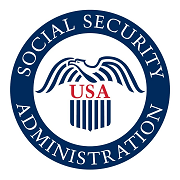[1042-S Box 3a, 4a] Exemption Codes
Exemption Codes are used to indicate the reason why withholding tax is not applied or is applied at a reduced rate to payments made to nonresident aliens or foreign entities.
These codes are entered in Box 3a and 4a and relate to specific exemptions under U.S. tax law or tax treaties.
Code: Authority for Exemption
Chapter 3
01: Income effectively connected with a U.S. trade or business
02: Exempt under an Internal Revenue Code section (income other than portfolio interest)
03: Income is not from U.S. sources
04: Exempt under tax treaty
05: Portfolio interest exempt under an Internal Revenue Code section
06: Qualified intermediary that assumes primary withholding responsibility
07: Withholding foreign partnership or withholding foreign trust
08: U.S. branch treated as a U.S. person
09: Qualified intermediary represents income is exempt
10: QI represents that income is exempt
11: QSL that assumes primary withholding responsibility
12: Payee subjected to chapter 4 withholding
22: QDD that assumes primary withholding responsibility
23: Exempt under section 897(l)
Chapter 4
13: Grandfathered payment
14: Effectively connected income
15: Payee not subject to chapter 4 withholding
16: Excluded nonfinancial payment
17: Foreign Entity that assumes primary withholding responsibility
18: U.S. Payees-of participating FFI or registered deemedcompliant FFI
19: Exempt from withholding under IGA
20: Dormant account
21: Other-payment not subject to chapter 4 withholding
Rules for Tax Rate and Exemption Code Relationship
There is a structured relationship between the tax rate and the exemption code.• When the Tax Rate is 0%:
An exemption code is required in Box 6. The exemption code explains why no withholding was applied to the income.
• When the Tax Rate is Greater Than 0% (e.g., 15%, 30%):
The exemption code in Box 6 must be 00. Exemption code 00 indicates that no exemption applies, and the withholding is based on standard rules. This scenario applies when no treaty benefit is claimed or the recipient does not qualify for any exemption under U.S. tax laws.





